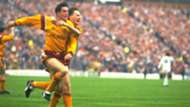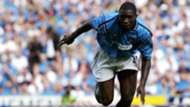
Deaths in football are thankfully a relatively rare occurrence but they shock and touch the worldwide community whenever the worst strikes
Like any sport, there is an element of risk in football. The nature of the game, with its high intensity sprints, exerts an enormous toll on the bodies of players and particularly their hearts.
Any undetected defects can prove fatal and while testing has steadily improved over the years, unfortunately tragic incidents can still occur.
The risk of head injury is another pitfall that footballers face each time they step on the field, with freak accidents like that one Petr Cech suffered while playing for Chelsea against Reading capable of causing serious injury. On that occasion, the keeper escaped with a fractured skull, but the incident could have been even more significant after doctors revealed that it had nearly cost him his life.
Another player who was close to losing his life during a top-level match in England was Fabrice Muamba, who collapsed in an FA Cup fixture against Tottenham in March 2012. The former England Under-21 international suffered a cardiac arrest and his heart stopped for 78 minutes. Following medical advice, he quit the game.
Sadly, there have been players who have not been so lucky over the years, with these some of the most prominent examples of those who have lost their lives playing the game they love.
Cheick Tiote (June 21, 1986 – June 5, 2017)
Just a couple of weeks before his 31st birthday, Tiote, who had only recently moved to Beijing Enterprises from Newcastle, collapsed during a training session having suffered a cardiac arrest. He was rushed to hospital but pronounced dead an hour later.
Once his body was returned to his homeland of Ivory Coast, he was given a military funeral, having been one of the top players in the nation, turning out 55 times for the Elephants and helping them to the Africa Cup of Nations in 2015.
Phil O’Donnell (March 25, 1972 – December 29, 2007)
A legend at Motherwell, O’Donnell, a once-capped Scotland international who scored in the club’s famous 4-3 Scottish Cup final win over St Mirren in 1991, was playing for his hometown side against Dundee United in a Scottish Premier League match when he collapsed just as he was about to be substituted.
After being treated on the pitch for five minutes, he was rushed to hospital but was pronounced dead shortly afterwards. A later examination showed that he had died of left ventricular failure.
He has had a stand at Motherwell’s Fir Park ground named after him, while David Clarkson, his nephew, is the only player to have subsequently worn the No.10 shirt.

Antonio Puerta (November 26, 1984 – August 28, 2007)
Spanish football lost one of its brightest young talents with the untimely passing of Antonio Puerta, who was turning out for his beloved Sevilla against Getafe in La Liga when he collapsed only 35 minutes into the clash.
He was initially able to recover and walk to the dressing room, but he collapsed again and was taken to intensive care, where he died three days later as a result of multiple organ failure caused by incurable, hereditary heart disease known as arrhythmogenic right ventricular dysplasia.
Miklos Feher (July 20, 1979 – January 25, 2004)
Miklos Feher was an established member of the Hungary national team, having turned out 25 times with a return of seven goals, when he passed away in Portugal while playing for Benfica.
He had spent the majority of his senior career on the Iberian Peninsula, having previously spent four years on the books of Porto. Playing away to Vitoria Guimaraes in a match broadcast on live television, he had just come off the bench to create the winning goal.
After receiving a booking in the closing seconds of the match, he immediately collapsed. His death would be confirmed before midnight, with cardiac arrhythmia brought on by hypertrophic cardiomyopathy the cause.
Marc-Vivien Foe (May 1, 1975 – June 26, 2003)
The footballing world was left shocked by the death of Marc-Vivien Foe, who had been a top player in Ligue 1 with Lens and Lyon, while also a Premier League regular with West Ham and Manchester City, with whom he had been on loan in the months before his passing.
Playing in the Confederations Cup semi-final for Cameroon against Colombia, he collapsed in the 72nd minute with no-one near him. Attempts to resuscitate him failed and he died in the medical centre of Lyon’s Stade Gerland.
An autopsy showed evidence of hypertrophic cardiomyopathy, a hereditary condition that increases the risk of death during exertion.

Samuel Okwaraji (May 19, 1964 – August 12, 1989)
A qualified lawyer, Samuel Okwaraji was more than an accomplished footballer and was turning out for Nigeria for the eighth time as they battled Angola in a bid to reach their first World Cup finals.
However, the former Roma youth player collapsed in the 77th minute at the Lagos National Stadium.
During his autopsy, it was shown that he had an enlarged heart and high blood pressure, possible complications of hypertrophic cardiomyopathy similar to Foe.
Jose Antonio Gallardo (December 31, 1961 – January 15, 1987)
Playing for Malaga in the Segunda Division against Celta Vigo, goalkeeper Jose Antonio Gallardo was involved in a nasty collision with opposing striker Baltazar that left him with a serious head injury.
He required three hours of surgery that same day and his condition seemed to be improving before he fell ill on January 7. He had suffered severe bleeding on his brain and died eight days later.
He was posthumously awarded the Zamora Trophy as he had the best goals-against average in the league when he was injured.

Be the first to comment